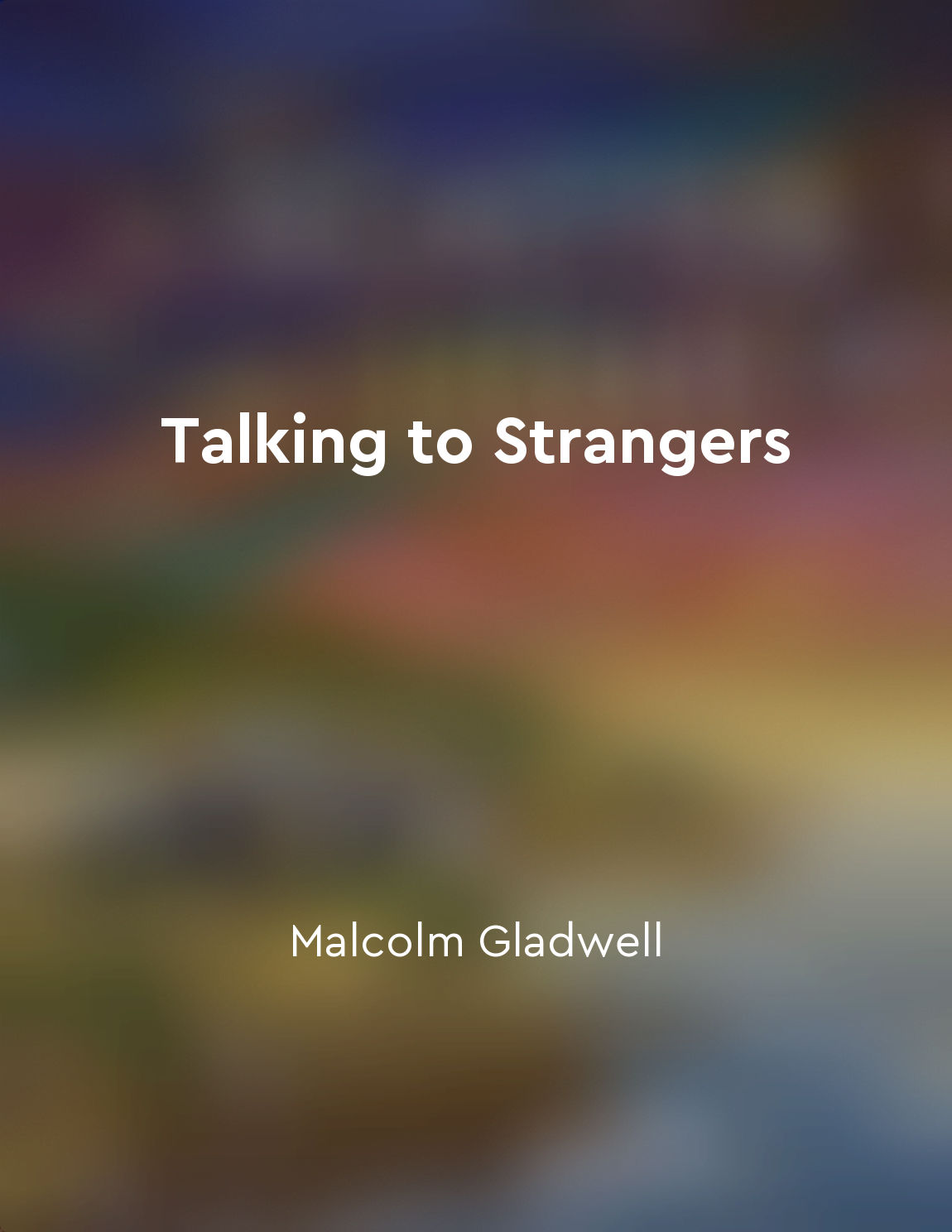Emotions can cloud our judgment of strangers from "summary" of Talking to Strangers by Malcolm Gladwell
When we encounter strangers, our brains automatically begin the process of forming initial impressions based on limited information. These impressions are heavily influenced by our emotions, which can often lead us astray in our judgment of others. Emotions have a way of distorting our perception of reality, causing us to make snap judgments that may not be accurate or fair. One of the main reasons why emotions can cloud our judgment of strangers is due to the concept of "defaulting to truth." This means that our natural tendency is to believe what people tell us, even when there may be evidence to the contrary. Our emotions play a significant role in this process, as we are more inclined to trust and empathize with others when we are in a positive emotional state. However, our emotions can also lead us to misinterpret the behavior of strangers, especially when they do not conform to our expectations. When we encounter someone who behaves in a way that is inconsistent with our preconceived notions, we are more likely to view them with suspicion or mistrust. This can create a barrier to effective communication and understanding, further complicating our ability to accurately assess strangers. In addition, our emotions can also be easily manipulated by external factors, such as cultural biases or stereotypes. These influences can color our perceptions of strangers, causing us to make unfair generalizations based on superficial characteristics. As a result, we may inadvertently judge individuals based on factors that have little to do with their true intentions or character.- The concept of emotions clouding our judgment of strangers highlights the complex nature of human interaction. It serves as a reminder that our initial impressions of others may not always be reliable, and that we must approach new encounters with an open mind and a willingness to challenge our preconceived notions. By recognizing the impact of emotions on our judgment, we can strive to overcome our biases and engage more effectively with the diverse range of people we encounter in our daily lives.


